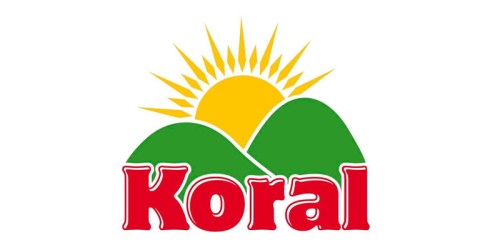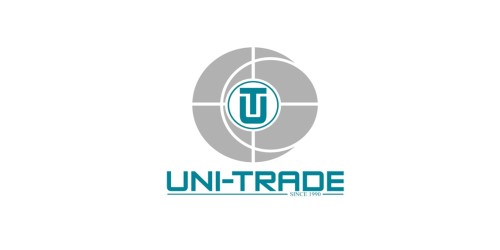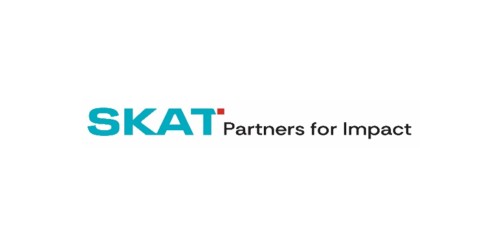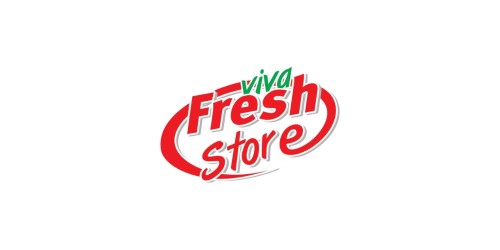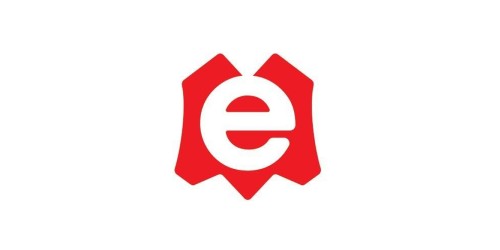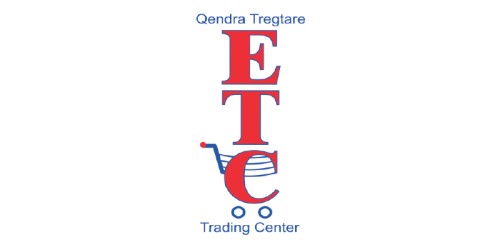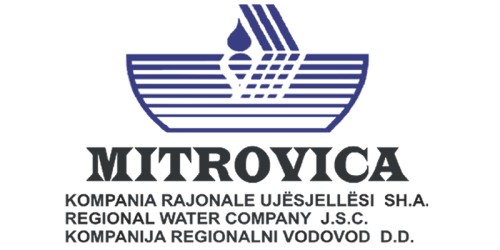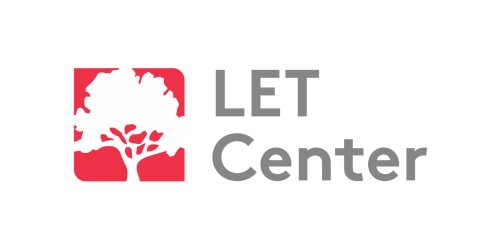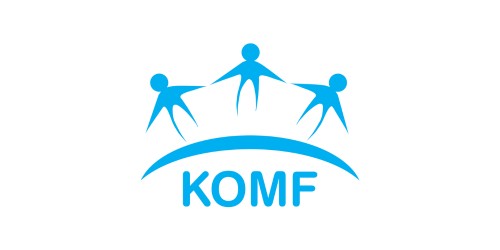
TERMS OF REFERENCES (TOR) Call for Application
Function: A local expert to conduct a comprehensive assessment on the child justice system, with a particular focus on the implementation of diversion measures for juveniles in conflict with the law, as well as the effectiveness of the child protection system in safeguarding child victims or witnesses of violence.
Place of Work: Kosovo wide
Coalition of NGOs for Child Protection in Kosovo – KOMF, established in 2011, is a coalition composed of 35 local and international NGOs working in the child protection field, with the joint mission to advocate and protect the rights of children in Kosovo.
As a key partner in advancing child rights and protection, UNICEF Kosovo Programme works closely with KOMF under the project “Protecting Vulnerable Children in Kosovo,” which is financially supported by the European Union in Kosovo. Through this partnership, UNICEF provides technical expertise and strategic guidance to implement the justice for children component. This component aims to strengthen the justice system for children in Kosovo by delivering a capacity-building program for justice professionals on implementing the legal framework for the protection of children in contact with and in conflict with the law.
Background:
In the area of justice for children, Kosovo has made significant progress in the past years to align its legislation to European and international standards and practices, including the provision of the Convention on the Rights of the Child (CRC). In 2018, the Kosovo Assembly endorsed the revision of the Juvenile Justice Code, and in 2019 approved the Child Protection Law. The revised Juvenile Justice Code aims to enable better protection and reintegration of juveniles in contact with the law, enhance implementation of diversion measures, reduce the length of pre-trial detention from 12 months to a maximum of six months, protects children under the age of criminal responsibility – i.e., those under 14 years of age, and introduces free legal aid and psychosocial services for the protection of child victims and witnesses. The revised Juvenile Justice Code has introduced new diversion measures, from 8 existing to 16 diversion measures (article 20 of the Juvenile Justice Code) that play a crucial role in preventing the initiation of court proceedings against juveniles and fostering their rehabilitation and reintegration into society. While, the Child Protection Law has foreseen new measures and services to protect the children from all forms of abuse, exploitation, neglect or any other form that endangers the life, safety, health, education, and child development.
Despite the achieved progress on advancing the legal and policy framework and ongoing reforms under the child protection and justice for children system in Kosovo, the main challenges remain the translation of the existing laws into actions and the development and implementation of prevention, protection and reintegration programs for vulnerable children. Furthermore, the child protection system still remains fragmented between local and central level stakeholders that is impeding effective coordination on provision of integrated services for abused, neglected and exploited girls and boys including their families.
While the results achieved through the EU and UNICEF supported project have significantly contributed to strengthening justice for children system, a notable gap remains between policy development and effective implementation. Compared to 2018, when juvenile justice was the area with the highest score compared to other areas of child rights and child protection, based on KOMF monitoring instrument “Report Card” published in two consecutive years 2023 and 2024, juvenile justice is rated with the lowest score. Specifically, it was assessed with grade 2 (scale of evaluation from 1 to 5). This constitutes an alarm for public institutions, civil society and international donors. While the project has successfully strengthened the capacity of professionals to implement the Juvenile Justice Code effectively, a critical challenge in the juvenile justice system is the recent decline in the execution and proper application of diversion measures. This trend raises concerns about the rehabilitation and reintegration of juveniles, making the effective use of diversion strategies crucial to reducing recidivism and ensuring long-term positive outcomes.
Another challenge remains, namely with protecting children under the age of criminal responsibility and provide access to specialized services, such as counselling and alternatives to detention and/or institutionalization and provide effective protection and rehabilitation for juvenile offenders. Limited capacity, along with lack of coordination between the probation service and Centres for Social Work limit the ability of the system to reintegrate children and prevent recidivism.
Despite the seriousness of the issue, there is a lack of appropriate responses and services to prevent, protect, or reintegrate children who are victims and witnesses of violence. One aspect of this protective environment is a referral system to ensure children receive the protective services they need, including access to safe and family- or community-based care solutions whenever separation is in the child’s best interest. This also applies in emergency situations, where children may need immediate protection and support. A key component of this system is providing a means for children to call for help and ensuring they are placed in a safe environment that delivers emergency child protection services while conducting necessary procedures, particularly in cases of violence, with special emphasis on offenses against sexual integrity when the child is a victim or a witness.
Rationale for the Study
Given the identified gaps and challenges, this comprehensive assessment is necessary to generate an evidence-based understanding of the child justice system's functionality, particularly in the areas of diversion measures and child protection for victims and witnesses. The study aims to provide actionable recommendations to inform policy reforms, capacity-building initiatives, and targeted interventions that will improve outcomes for children in contact with and in conflict with the law.
Objectives of the Study
The study will focus on two main components. The first component will assess the implementation of diversion measures for juveniles in conflict with the law. It will examine the extent to which diversion measures have been applied, identify barriers preventing their effective use, and analyze how they contribute to rehabilitation and reintegration. Additionally, it will explore gaps in coordination among justice sector actors and service providers, as well as the impact of these measures on reducing recidivism among juveniles. The findings from this component will guide policy improvements and training programs for justice professionals to ensure the consistent and effective use of diversion measures.
The second component will assess the effectiveness of the justice system in handling cases involving child victims and witnesses of violence. This will include the review of legal and procedural safeguards in comparison to international child-friendly justice perspective; understand the capacity of justice professionals to handle these cases with a trauma- informed approach; assess coordination mechanisms with the child protection services and referral pathways; and availability (mapping) of available specialized and /or integrated services. By broadening the scope beyond children in conflict with the law to include those in contact with the justice system as victims or witnesses, the study will provide a comprehensive understanding of how the child protection and justice systems interact to ensure children's rights are upheld.
Scope of Work:
Under the overall supervision of the Project Coordinator, the local expert will lead the design and implementation of the studyapplying qualitative data collection methodology. Specifically:
- Qualitative Methods: Key informant interviews with justice and child protection professionals, focus group discussions, and case studies to gather in-depth insights.
- Desk Review: Examination of relevant legal frameworks, policies, and previous studies to provide context and background.
- Desk review and secondary data will be used in triangulation with the primary data collected.
Clarification on Methodology and Stakeholder Engagement:
- The assessment will ensure that each component is examined systematically:
- Diversion measures will be assessed through legal analysis, interviews with professionals, and statistical review.
- The effectiveness of the justice system in handling child victims and witnesses will be analyzed through stakeholder consultations, case studies, and service mapping.
- Interviews and focus group discussions are planned separately to gather both individual and collective insights:
- One-on-one interviews will be conducted with key stakeholders to capture specific technical perspectives.
Supervisor: Project Coordinator
Start Date: April 2025
End Date: May 2025
Number of Working Days: 30 Days
Deliverables/Outputs: | Timeline | Estimated budget |
Conduct desk review of available data sources and the legal frameworks that include relevant legislations, national policies, reports, studies and other documents related to the current child protection and justice for children’s systems in Kosovo. The expert will coordinate closely with the KOMF and UNICEF focal points, ensuring that each step—data collection, analysis, and key findings—is reviewed and validated by KOMF and UNICEF before finalization." | 4 days |
|
UNICEF with the support of KOMF, and local expert will convene a meeting with the Ministry of Justice (MoJ), Probation Service, and Prosecutor’s Office to review and agree on the methodology and scope of the assessment. | 1 day |
|
Finalize the methodology and inception report after the desk review and share them for review and approval by KOMF and UNICEF. | 2 days |
|
| Conduct interviews and consultations with different stakeholders, the Kosovo Academy of Justice, Ministry of Justice, the Prosecutorial Council, the Judicial Council, Probation Service, Kosovo Police, Centre for Social Work, UNICEF, CP NGOs and other relevant child protection and justice for children professionals to ensure a thorough understanding of the topics. | 7 days |
|
| Conduct focus group discussion meeting with relevant government institutions, including the Kosovo Justice Academ, Ministry of Justice, UNICEF, EULEX, and other professionals such as prosecutors, judges, police officers, lawyers, probation officers, social workers, and victim advocates. The discussion will aim to gather diverse perspectives and insights on the current situation of children in conflict with the law, as well as child victims and witnesses of violence. | 2 days |
|
| Prepare a final report by analyzing information from desk research and data collection, ensuring evidence-based conclusions and clear recommendations to address systemic challenges in justice for children system for children in conflict with the law as well as the effectiveness of the child protection system in safeguarding child victims or witnesses of crime. | 5 days |
|
| Finalize the report with inputs and comments received from the relevant stakeholders. | 6 days |
|
Prepare a presentation of the preliminary findings of the assessment and record feedback from the consultations with stakeholders. Finalize the presentation with final key findings. | 2 days |
|
| Prepare a policy brief with key findings aimed at policymakers and high-level governments and stakeholders – aimed at promoting key reforms needed to address gaps highlighted in the report. | 1 day |
|
Knowledge/Expertise/Skills required:
- Master’s degree in law, Social Sciences, or related disciplines.
- At least five (5) years of experience in legal and policy frameworks on children's rights, child and social protection, and justice for children.
- Proven knowledge and expertise in conducting research and studies related to children's rights, child protection issues, access to justice and child justice.
- Previous engagement with government, UN and international agencies, NGOs, and donors.
- Familiarity with Non-Governmental Organizations.
- Excellent inter-disciplinary relations and consulting skills.
- Excellent command of English language.
Application submission:
Interested candidates should submit the following documents via email to [email protected] :
- CV
- Portfolio of previous work or sample in conducting research and studies related to children's rights, child protection issues and juvenile justice.
- Financial offer with proposed daily and total fee (Gross). The financial proposal must include the statement of the validity of the proposal, at least four weeks from the submission date.
Quality Evaluation
The quality of the applications will be evaluated using the evaluation criteria in the evaluation grid below.
Criterion | Points | Maximum |
Experience / portfolio of the applicant: Does the applicant have relevant experience in conducting research and studies related to children's rights, child protection issues, access to justice and child justice |
| 60 |
Financial offer: How realistic and effective the financial offer is, in relation to the submitted offer? |
| 40
|
Total points |
| 100 |
Deadline for submission:
The application must be received by the latest on 06 April 2025, by midnight. Applications must be submitted in English. Proposals received after the deadline or in other languages will not be considered.
Please note that only selected candidats from their documentation will be notified for the interview.
The selected consultant will read and sign the service contract, together with the below listed documents: KOMF child protection policy, policy against sexual exploitation and abuse and job description. The mentioned document constitutes the integral parts of the employment agreement between the employer and the consultant.

